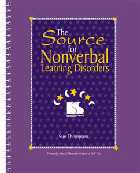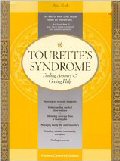 Bookstore
Bookstore
Selected books of interest, recommended by Special Educational parents.
(The Concord SEPAC no long receives 15% of the selling price of each book you buy from our page. Amazon has ended this program. We used to use this program to help fund this website. We thank you for your support.)
For recommend books on Advocacy,
Parenting
Difficult & Defiant Children,
Learning
issues, Executive Function (3 books) or
Reading
Issues, click on the
topic,
to
take
you to a our other webpages.
| Understanding
Girls with AD/HD by Kathleen G. Nadeau, Ph.D, Ellen B. Littman, Ph.D, Patricia O. Quinn, M.D. (2000) |
|
| This book is will increase awareness of girls with AD/HD, many of whom continue to remain unidentified. It targets each developmental and educational stage, form toddler years through adolescence, from preschool through high school, describing typical behaviors, age appropriate treatment interventions, and offering an age related screening checklist for each stage, to help parents and professionals better identify girls who are at risk. The authors' professional perspectives on girls is strengthened by recollections of women with ADD,, not diagnosed until adulthood, who vividly describe their girlhood struggles, being misunderstood, and feeling blamed for their difficulties. | |
| Look Me in
the Eye: My life with Asperger's by John Elder Robison (2007) |
|
|
hardcover |
Robison's story is a detailed moving memoir, beginning with his painful childhood, his abusive alcoholic father and his mentally disturbed mother. Robison describes how from nursery school on he could not communicate effectively with others, something his brain is not wired to do, since kids with Asperger's don't recognize common social cues and body language or facial expressions. Failing in junior high, Robison was encouraged by some audiovisual teachers to fix their broken equipment, and he discovered a more comfortable world of machines and circuits, of muted colors, soft light, and mechanical perfection. This led to jobs (and many hilarious events) in worlds where strange behavior is seen as normal: developing intricate rocket-shooting guitars for the rock band Kiss and computerized toys for the Milton Bradley company. Finally, at age 40, while Robison was running a successful business repairing high-end cars, in Springfield Mass. a therapist correctly diagnosed him as having Asperger's. In the end, Robison succeeds in his goal of helping those who are struggling to grow up or live with Asperger's to see how it is not a disease but a way of being that needs no cure except understanding and encouragement from others. (Sept.) Copyright © Reed Business Information, a division of Reed Elsevier Inc. All rights reserved. |
Return
to top
Autism
Auditory
Processing Disorder (APD)
LD/ADHD
| The
Source for Nonverbal Learning Disorder by Sue Thompson (1997) |
|
Click on cover to
order  paperback 182 pages Spiral edition 0760601631 If not available |
If you've heard the phrase "Non-verbal learning disability" and aren't sure what it means or whether it applies to your child, or what to do about it, do check this book out. An excellent resource for parents, teachers, and anyone else who works with any children with NLD. There is a list of common characteristics of NLD. Lots of stories about NLD children. There is an easy to read Developmental Profiles list by age range. A chart comparing PDD, Asperger's, NLD, etc. Lots of very helpful information. Not sure if you have a student or child with nonverbal learning disorder (NLD)? See if this description sounds familiar: ignores verbal cues such as facial expressions, is clumsy for no apparent reason, makes inappropriate social remarks, has difficulty with visual-spatial-organizational tasks. This resource provides you with useful checklists, anecdotes, and methods for dealing with this little understood disorder through the lifespan.
|
Tourette's Syndrome
Tourette's Syndrome: Finding Answers and Getting Help (Patient-Centered Guides) by Mitzi Waltz (2001) |
|
Click on cover to
order  paperback 416 pages Edition 1 Patient Center Guides 0596500076 |
Tourette's syndrome is a neurological disorder usually
diagnosed in
childhood. It is characterized by tics: physical jerks and involuntary
vocalizations. Some people with Tourette's also have other disorders,
particularly attention deficit hyperactivity disorder (ADHD)
or obsessive-compulsive disorder (OCD). Tourette's syndrome can be a
minor challenge or a truly devastating disability. People with
Tourette's often experience anxiety, embarrassment, sometimes even
harassment. Their symptoms can prevent them from having a normal
childhood, building good relationships, achieving their best in school,
or finding menaingful employment. The effects of this disruption can be
painful and lifelong. The good news is that Tourette's is very
treatable and sometimes subsides with age. With prompt, consistent
intervention, most people with Tourette's can wrest back control of
their lives. Tourette's Syndrome helps you: Secure an accurate and complete
diagnosis
Author Mitzi Waltz, an advocate for people with neurological
challenges, has included the stories of dozens of people living with
Tourette's and parents of children and teens with Tourette's. Live with Tourette's in the family: using effective parenting techniques, building support systems Understand medical interventions Obtain appropriate medical care from an existing health plan Deal with Tourette's in the community and workplace Navigate the education system Find resources |
| back to main book web page |

|
|
One of our original webpages, September 10, 2002, by Melody
Orfei
Webpage
last
modified on April 5, 2019 - V16, by Melody
Orfei
|
|
|